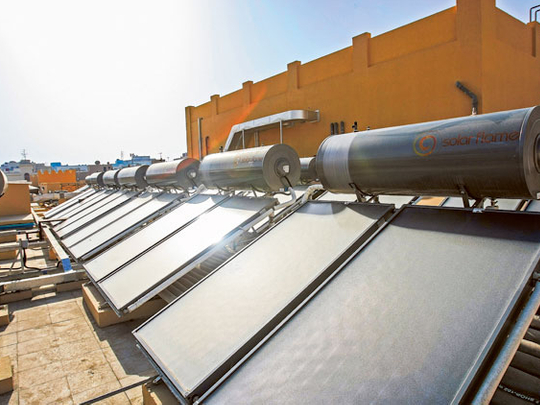
Dubai: Air quality in the UAE is set to become healthier by 2021 as authorities are carrying out a number of initiatives to reduce its ranking from being one of the highest emitters of carbon dioxide per capita.
“In 2013, the United Nations certified Dubai as having reduced 1.5 million tonnes and, by 2021, we aim to use 24 per cent of clean energy to power the emirate,” said Waleed Salman, Executive Vice-President of Strategy and Business Development, Dubai Electricity and Water Authority (Dewa).
“By 2030, Dubai will use five per cent renewable energy through using solar power and, according to Dubai’s strategic plan for 2030, aim to reduce demand for power by 30 per cent at a cost of Dh55 billion, which is now being carried out by converting buildings into green ones that save energy,” said Salman.
Dubai’s focus on reducing carbon emissions was revealed on the sidelines of a conference yesterday that announced the World Green Economy Summit, which will be held at Dubai International Convention and Exhibition Centre from April 15 to 16.
The first edition of the Green Economy Summit will be an annual event to look at business opportunities around the premises of a green economy.
The World Green Economy Summit will be a prelude to the Road to Paris 2015 initiative, where nations around the world will work towards securing a legally binding global climate agreement on curbing carbon emissions, with binding effect from 2020. The UAE has already been invited to participate in the initiative.
“The World Green Economy Summit is an important platform that brings together governments, non-government organisations and the business sector with the purpose of finding green viable solutions that can contribute to the transformation of a world green economy,” said Saeed Mohammed Al Tayer, Chief Executive of Dewa.
He explained that the Mohammad Bin Rashid Al Maktoum Solar Park’s first project is now in operation, and is part of the emirate’s efforts towards reducing its carbon emissions.
“The consultancy services for the 100 megawatt second project of this giant Solar Park have been awarded, and the total capacity of this park will reach 1,000 megawatts after being completed by 2030,” said Al Tayer.
He added that Dubai has adopted eight programmes, 24 initiatives, and 76 procedures to manage the demand of power, aimed at achieving a green and sustainable economy.












